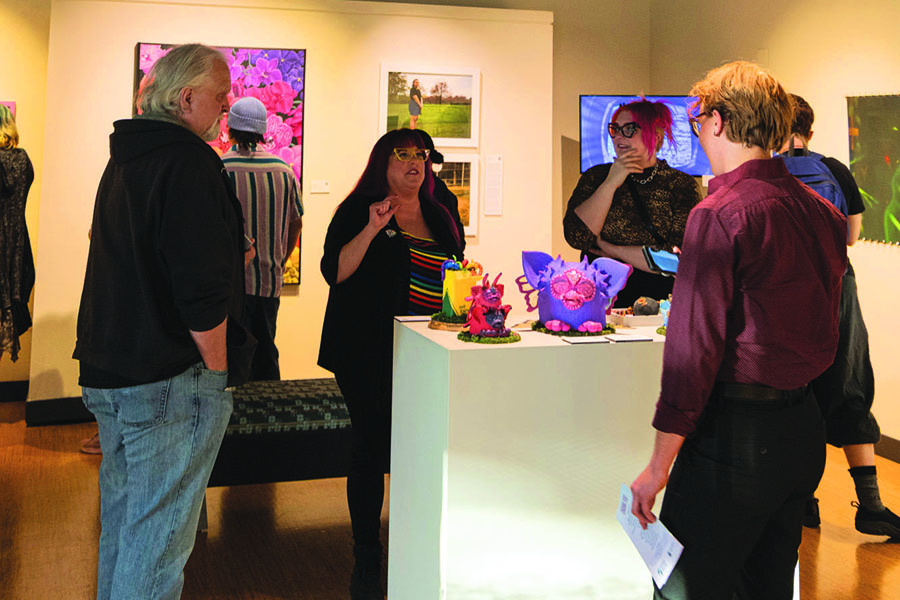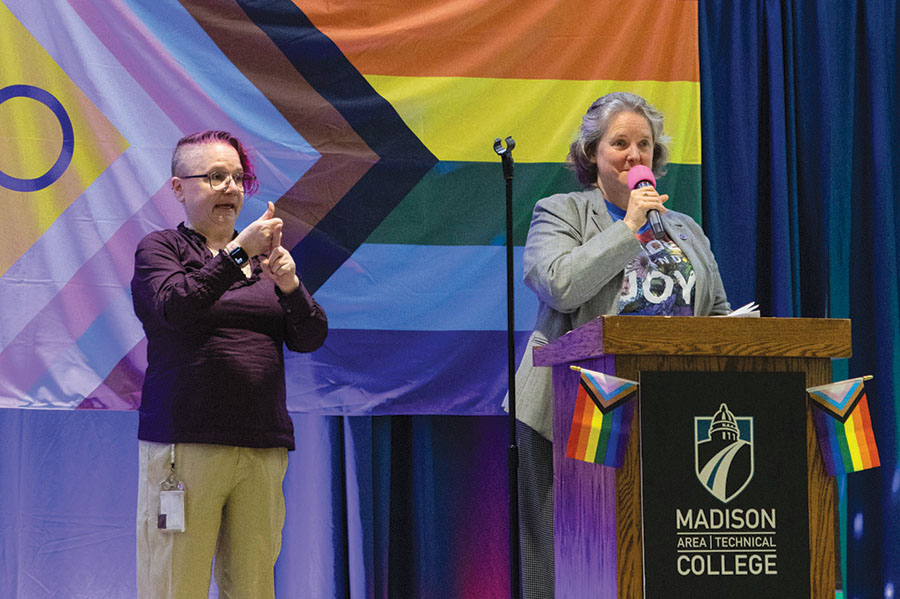Madison College’s employee affinity group the Sexuality and Gender Advocates (SAGA) celebrated its art exhibit, “Queer: A Proud & Loud Art Show,” on Oct. 9. The exhibit, which opened Sept. 29, will remain on display in the Truax Gallery through Oct. 24.
The opening ceremony treated attendees to music, food, drinks and drag performances by Madison LGBTQIA+ leaders Jacques Inifinit-Hall, Ponyboy, Andi Withani Domino, Nemo and Cass Marie Domino. In support of the performers and their dedication to their craft, audience members were encouraged to tip and cheer throughout the show.
The gallery display centered on the voices and artwork of Madison College LGBTQIA+ staff, students and faculty. Surrounded by peers and allies, the exhibit served as a celebration of radical self-expression and artistic resistance in an era of social regression and suppression. Featured works included intricate taxidermy collages set in resin, complex paintings, captivating pottery and immersive video art.

The event was a collaborative effort among SAGA, the school of business, events, Public Safety and custodial staff. A special thanks was given to Nick Loveland, who curated the show and art within the gallery. Their combined efforts ensured the event’s success and reflected Madison College’s commitment to fostering and supporting dedicated spaces to the queer community on campus.
The opening ceremony also featured keynote speakers, including Madison College President Dr. Jennifer Berne, Madison Mayor Satya Rhodes-Conway – the city’s first openly LGBTQIA+ person to hold office – and Dr. Damira Grady, vice president of College Culture, Climate and Community Impact.
Each spoke about the importance of inclusion and the shared responsibility to foster belonging within both Madison College and the greater Madison community.
Dr. Grady, who makes it her mission to center the needs of the most vulnerable at the institutions she serves, reflected on her early experiences at Madison College. She said that while she initially believed she was doing a good job supporting all marginalized groups, she later learned that this wasn’t fully reflected when it came to queer spaces on campus.
She recalled honest conversations with students and staff who helped her recognize that more attention was needed to create those spaces.
“I had to sit with that truth and say, you’re right. What can I do, what do I need, how can I help you?” she said. “And I also have this boundary – I hate to put the emotional labor on people to teach me about what belonging is for them or to help teach me how to help them – but I really appreciate Sophie.”
Grady described how collaboration between herself, staff groups like SAGA and other campus partners – built on transparency and a shared goal to listen to marginalized voices – resulted in a vibrant and inclusive event.
“I never thought that one: they would dream up something this amazing, but also that they would invite me to the table – invite me to help do something to center them, trust me to do something that felt authentic and curated for them,” she said. “I didn’t come and take up space, they asked me to speak. What I love about it is that it brought together other parts of our community. Their one ask spread across our institution.”




























